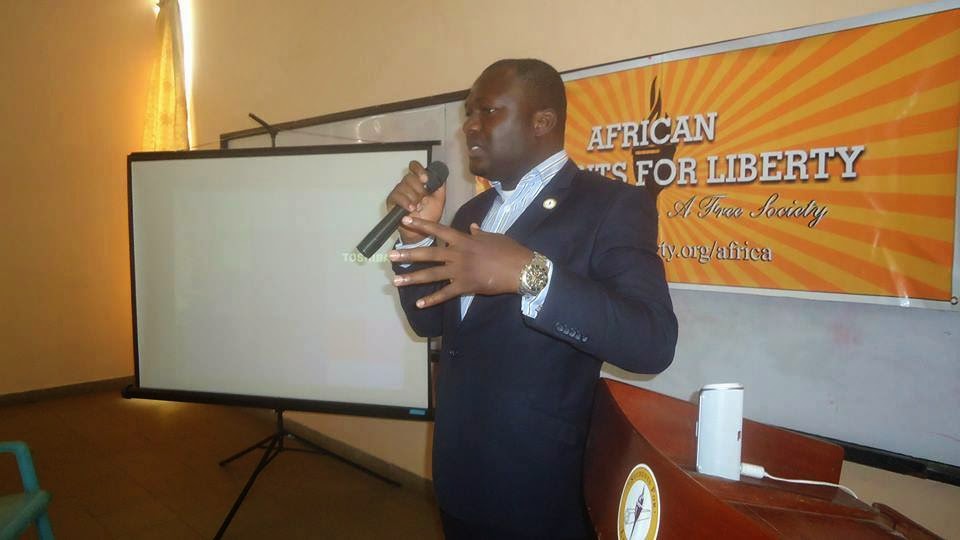Rebecca Stromeyer who runs the annual elearning Africa conference tells how IT is transforming education.Rebecca Stromeyer is founder and CEO of Integrated Communications Worldwide Events, which runs the annual elearning Africa conference.
Tell us a bit about yourself.
My father was an educational entrepreneur who always encouraged me to take an active role in the family business. In 1975 we were living in Lebanon, but we were forced to flee when the country descended into civil war. We essentially became refugees in the UK. Challenging times
followed. At 15 I was living in an apartment with just my younger sister. But one of the things that kept me focused and grounded was my early education. So I know first hand the value of learning.
The initial idea for the e-learning events was sparked in 2004 when I heard about optical fibre cables being laid in Ethiopia. I realised the potential information and communications technologies (ICT) held for development in Africa. This year's elearning Africa conference in Uganda is our 9th. We have been hosted by Ethiopia, Kenya, Ghana, Tanzania, Zambia, Senegal, Benin and Namibia and typically have over 1,500 participants and more than 300 speakers.
How do your conferences support development?
Learning is the cornerstone of all development. Without the underpinning of quality education, other systems upon which development depends – governance, health, economic growth, the judiciary, commerce – can never reach maturity.
Our e-learning conferences bring together stakeholders from every sector: government, private organisations and bodies like the United Nations Organisation for Education, Science and Culture (Unesco) – techie people can meet academics and everyone in between, and cooperate on development issues.
But one of our priorities is getting the grassroots workers to the conference. So we award scholarships and subsidies, because it is important that we give people like teachers and headteachers a voice, to gain an understanding of the deeper issues. We also connect them with policymakers and organisations who want to support them, whether through funding or providing materials like computers.
This networking happens on a number of levels, so a minister from Malawi might connect with a minister from Ghana and they can learn from each other. We try to highlight, not just what is best practice, but also what is worst practice, because part of the solution is knowing what not to do.
With 30 million children out of school in Sub-Saharan Africa (pdf), the region has been identified as a priority area for Unesco.
How can ICT help to address the problem?
An African permanent secretary once told me that e-learning is the solution for education in Africa. I pointed out that I come from a generation that was schooled without that technology and is extremely
well educated. What is vital, I argued, is adequate teacher training. But e-learning is also very important, especially in the internet, technology-driven world we live in.
For Africa it can be a valuable tool in improving access to education. For example, to produce textbooks and distribute them across schools is hugely expensive and very difficult. Whereas online access to information such as teaching resources and lesson plans, which can be used to build a curriculum, is cheap and easy once the technology and infrastructure is in place and the teacher is trained to use it.
What are some of the themes in this year's conference?
One of the main themes is the youth. There is a skills deficit that is preventing them from progressing and we want to open a discussion on ways to address this.
We will also discuss whether Africa should adopt a western higher education model or create different kinds of programmes. Also, how to use technology to attract young people to working in agriculture. And we want to connect the many new African IT entrepreneurs with policymakers, so governments know what tools or infrastructure they need to enhance and support what they are doing.
What are some of the challenges facing the organisation?
One of our main challenges is trying to keep ahead of trends while also trying to maintain a balance and not get swept up in empty hype. There are a lot of hot topics in the education-technology sector at the moment, and while we need to reflect these changes in our conference programmes, there is a danger of losing sight of the less rock star basic elements, which may often be more impactful in the
long term.
What is your vision for the organisation?
To continue to be a great enabler for development in Africa, to raise awareness of what can be done and give people access to the information and technology to accomplish it. It is also important to
get governments to realise the value of teachers and ensure they have the tools and environment they need to do their jobs. Education is the key to understanding and democracy, and in Africa it is vital tool for development and empowerment.
SOURCE: The Guardian
 Join ASFL from Friday, the 25th of July through Saturday, the 26th of July for a weekend of inspiring lectures, insightful knowledge, and endless networking with pro-liberty students and young professionals from around the world.
Join ASFL from Friday, the 25th of July through Saturday, the 26th of July for a weekend of inspiring lectures, insightful knowledge, and endless networking with pro-liberty students and young professionals from around the world.










